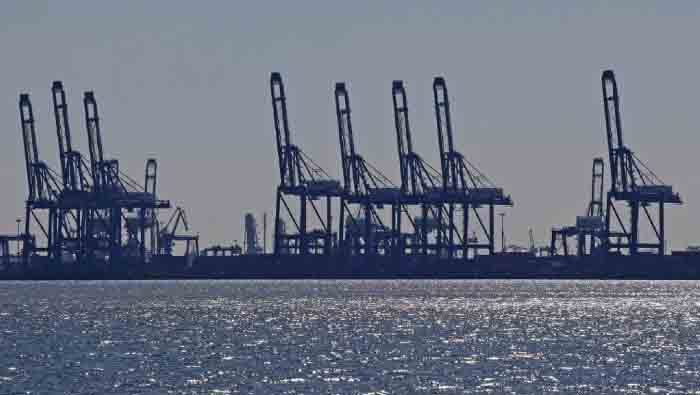
Muscat: Business owners and investors in Oman have welcomed India’s new budget, and said it would boost private investments and allow for more foreign direct investment (FDI), which would promote further economic development.
The Indian budget was announced during a session of the Indian parliament, and Dr. B. R. Shetty, Founder and Chairman - NMC, Finablr and BRS Ventures, said: “By and large the Union Budget of 2019 provides policy stability and broadly aligns with the interim budget priorities presented about four months ago. To me, what stands out is the vision announced by the Finance Minister to transform India into a five trillion economy in few years. Coming right off the back of the 2019 Economic Survey, the Union Budget emphasises on infrastructure spending and boosting private investments head on as a priority. Unlike the previous year, the resounding mandate given to the Modi Government has allowed it to present a balanced growth-focused budget not hamstrung by the populist pressures of an election year.”
Promoth Manghat, Group Chief Executive Officer of Finablr, said there would be more opportunities for public-private partnerships, and the introduction of digital awareness programmes such as BharatNet would make more people become more financially literate.
Policy initiatives
“At first glance, the 2019 Union Budget lays out a host of policy initiatives seeking to drive investment-led growth - be it easing the rules for FDI inflows, divestment of State-owned enterprises or the call made out by the Finance Minister for public private participation for developmental programmes,” he explained. “I am particularly heartened by the strong emphasis placed on digital India and the initiatives announced around the same. Digital payments and the cashless agenda of the government gets a major stimulus with the proposed TDS levy of two percent on annual cash withdrawals exceeding INR1 crore. This is a bold move that is duly supported by an able payments infrastructure, and with no charges or MDRs imposed on customers or merchants, the friction for adoption is bound to be minimal.
He also said: “The emphasis on programmes such as BharatNet that promotes universal connectivity and digital literacy will continue to facilitate grassroots level digital adoption and change. The budget also partially addresses the issue of Angel Tax - a perennial grouse for startups - and will go a long way in supporting the expansion of the startup ecosystem in the country.”
Inclusive growth
One of the biggest sources of income from overseas to India was in the form of remittances. According to the World Bank, India received the highest amount of remittances from overseas in 2018, totalling $78.6 billion. Its fellow subcontinent members Pakistan and Bangladesh were also among the top 10 recipients of remittances. Pradeep Kumar TP, CEO of UAE Exchange and Unimoni, one of Oman and the GCC’s leading remittance firms, felt that this new budget would provide for growth that would benefit everyone.
He said: “This year’s union budget reflects the government’s commitment towards inclusive growth. Significant reforms have been announced for areas such as FDI, agriculture, infrastructure, MSMEs, NBFCs, and women empowerment, among others. This budget continues to drive the government’s focus on creating a cashless economy through various incentives for the country’s digital payments landscape. Startups get a major boost in budget 2019 with a host of reforms across payments, education and labour laws aimed at unleashing India’s entrepreneurial spirit.”
Investment made easier
He also shed light on how this budget would benefit Non Resident Indians, adding: “This year’s budget is significant for the NRI community as it proposes to make NRI investments much easier by merging the NRI portfolio route with foreign portfolio investment. India is the largest remittance-receiving country in the world, and by giving seamless access to Indian capital markets, the government is encouraging NRIs to play an even more prominent role in India’s economic activity.”
The government’s move to issue Aadhar cards to NRIs upon arrival to India is also a significant step towards improving NRI welfare. On the flip side, fuel prices are set to rise with additional excise duty and road cess. However, electric vehicles will get cheaper as the government proposes various tax benefits to boost adoption.”
But Shamlal Ahamed, Managing Director – International Operations at Malabar Gold & Diamonds, said that while the new gold import duty would affect India’s domestic gold sales, it would help the sales of gold in Indian outlets that operated overseas. He said, “the union budget 2019 will definitely help in the progress of the rural India however the additional import duty for gold will hurt the domestic gold and jewellery market and promote illegal gold businesses which is detrimental to the economy. This however will lead to further price advantage in prominent neighbouring jewellery markets like GCC, Singapore, Malaysia, Sri Lanka, etc. The price advantage of 10-12.5% along with VAT refunds for tourists will definitely lead to GCC, Singapore, Malaysia and Sri Lanka, benefiting from jewellery tourism.”